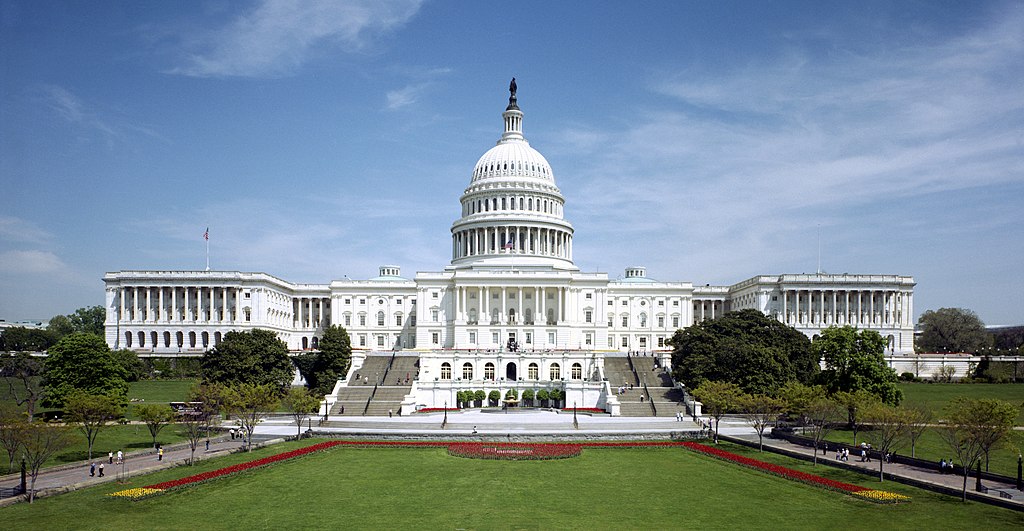Confidence in Government on National Security Matters: December 2017
In July we began a polling project to measure public confidence in government institutions on national security matters on an ongoing basis. This post provides our data for the month of December.

In July we began a polling project to measure public confidence in government institutions on national security matters on an ongoing basis. This post provides our data for the month of December. It includes perceptions of government institutions and the two major political parties’ handling of national security; the president’s handling of key national security issues; Special Counsel Robert Mueller’s investigation; ongoing military operations; and electronic surveillance issues as Congress considers reauthorization of FISA Section 702 authorities.
Confidence in Institutions to Protect U.S. National Security Remains Stable
In the last week of December 2017, we used Google Surveys to ask respondents the following questions about confidence in institutions:
- How much confidence do you have in the Congress to protect U.S. national security?
- How much confidence do you have in the federal courts to protect U.S. national security?
- How much confidence do you have in the President to protect U.S. national security?
- How much confidence do you have in the intelligence community to protect U.S. national security?
- How much confidence do you have in the military to protect U.S. national security?
The results for December are largely consistent with our polling from previous months, though every institution received at least a modest boost in public confidence (perhaps a reflection of people being happier during the holidays). The military remains the most trusted institution to protect national security, followed by the intelligence community, the federal courts, the president, and the Congress. The intelligence community and the military are the only institutions in which the public has net positive confidence to protect U.S. national security. On a scale of 1 (“No confidence”) to 5 (“High confidence”), the average score for the intelligence community is 3.2 and for the military it is a whopping 3.8.

The Republican Advantage in Confidence to Protect U.S. National Security Grows, but Neither Party is Trusted
The Republican Party’s advantage over the Democratic Party in public confidence to protect U.S. national security has grown for the third straight month, since the parties were tied in September. In December, the Republican Party held an average confidence score of 2.76, while average confidence in the Democratic Party was 2.58. With the public’s average level of confidence in Congress also at 2.58, this marks the first time in our polling that a party was not seen more favorably than Congress as a whole.

When respondents are forced to choose between the parties on national security, Republicans again hold an advantage over Democrats (30 percent to 22 percent), a marked increase from November, when Republicans held just over a six point advantage over Democrats (28 percent to 22 percent). But, once again, the public doesn’t really trust either party, with 46 percent of respondents responding that they support “neither” party on national security or that they just “don’t know.”

Confidence Remains Low in the President’s Handling of Key National Security Issues
In November, we began asking respondents how confident they were in the president’s ability to handle key national security issues, specifically in regards to Iran, North Korea, and terrorism. In December we found that confidence in the president on these issues remains low, although confidence in the president’s ability to handle Iran and terrorism increased slightly. Indeed, confidence in the president’s handling of each of these issues is well below the already-low level of average confidence in the president’s handling of national security (2.71). Moreover, a strong plurality of respondents to each of these questions reports having “no confidence” in the president. Most strikingly, a near majority of Americans (48 percent) report having “no confidence” in President Donald Trump’s handling of North Korea.

Support for Special Counsel Mueller Continues to Rise-and-Fall with Indictments
Over the course of multiple surveys, we have found that public confidence in Special Counsel Mueller’s investigation of Russian interference in the 2016 election rises following the announcement of indictments by Mueller’s team, and then falls as media coverage of the indictments wanes. We first observed this pattern of indictments increasing support for Mueller in polling before and after the Paul Manafort and Rick Gates indictments in November. In late November and early December, we saw this same pattern again in polls we conducted before and after the plea agreement with Michael Flynn. In our latest poll, conducted nearly a month after the Flynn plea agreement, as expected, we see a drop in average confidence in the Special Counsel to 2.91. Note, however, that confidence in Mueller remains well above confidence in the president, Congress, and the federal courts. It also remains higher than the previous baseline from which the confidence bounce took place. Moreover, confidence in Mueller remains extremely polarized, with 31 percent reporting “no confidence” in him and and 28 percent reporting “high confidence” in him.

Confidence in Ongoing Military Operations Remains Well Below Confidence in the Military
Of all the institutions we asked about, the public has the most confidence in the military to protect U.S. national security by far. Yet, while average confidence in the military is a 3.8 on our scale, confidence in ongoing military operations in Afghanistan and Iraq and Syria is markedly lower, with average confidence scores of 2.9 and 2.81 respectively. This nearly one point gap is similar to what we found in our November poll. In short, high levels of confidence in the military as an institution does not appear to translate into public confidence in the handling of specific military conflicts.

The Public Continues to be Ambivalent about Electronic Surveillance
In October we began asking respondents about their views regarding electronic surveillance, privacy, and Section 702 reauthorization. In late December, we once again asked this battery of questions, and the public’s response once again reflected ambivalence.
Asked if they “favor Congress's letting certain surveillance authorities used by the FBI and NSA to spy on overseas targets without a warrant continue?” two-thirds answered “I don’t know/no opinion.” To the question of whether American law protects privacy in the context of intelligence and law enforcement operations strongly, a near majority (47 percent) answered a neutral “3” on our scale that ranged from 1—“not strongly enough” to 5—“too strongly.” Finally, asked if intelligence agencies have too much or not enough authority, a large plurality (40 percent) answered a neutral “3,” with the remaining 60 percent split fairly evenly but with a slight lean towards “too much authority.”
Methodology
From December 25-27, we once again used Google Surveys, which is supporting this project with a large in-kind donation of access to its survey platform, to ask a variety of questions related to national security. Respondents are internet users over 18 who answer “surveywall” questions on websites that use Google Opinion Rewards for Publishers to access content. Surveys appear on a network of more than 1,500 sites, including USA Today and the Financial Times. For more information on Google Surveys’ methodology, including questions regarding sampling bias and inferred demographics, please see Google’s white paper on the topic. Benjamin Wittes and Emma Kohse also discussed criticisms and advantages of the Google Surveys methodology at some length in this paper.






